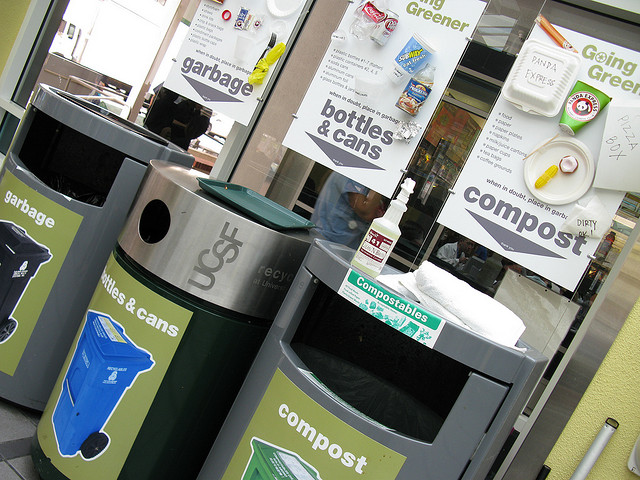On April 29 the US Supreme Court reversed a lower court decision, reinstating US Environmental Protection Agency (EPA) rules requiring states to control emissions of air pollutants that contaminate downwind states (EPA v. EME Homer City Generation, LP). The Cross-State Air Pollution Rule (CASPR, or the “Transport Rule”) implements “Good Neighbor” provisions in the Clean Air Act (CAA) designed to ensure that upwind states’ emissions don’t prevent a downwind state from meeting air quality standards. This ruling frees EPA to implement rules requiring tighter emission controls on pollutant sources in upwind states.
Audit, Compliance and Risk Blog
Supreme Court Reinstates EPA Interstate Regulation of Upwind Air Emissions
Posted by Jon Elliott on Wed, May 07, 2014
Tags: Business & Legal, Health & Safety, Environmental risks, Environmental, EHS, climate change, Transportation
EU Parliament To Require Corporate Social Responsibility and Diversity Reporting
Posted by Jon Elliott on Mon, May 05, 2014
On April 15, the European Parliament adopted a proposal to expand public company requirements to report accounting information, adding social responsibility and diversity reporting for companies that meet specified employee and revenue thresholds. The new directive provides targeted companies with flexibility to meet these rules by meeting national or voluntary standards that require at least equivalent reporting. To become law, the Commission's proposal must also be adopted by the European Union (EU) Member States in the Council (which votes by qualified majority); this is anticipated within the coming weeks.
Tags: Corporate Governance, Business & Legal, Employer Best Practices, International, Environmental risks, Environmental, EHS
News from The Bureau of Safety and Environmental Enforcement (BSEE) Press Release Issued April 3, 2014
Tags: Corporate Governance, Business & Legal, SEC, OSHA, Environmental risks, Environmental, EHS, Oil & Gas, climate change
On April 11, the D.C. Circuit Court of Appeals denied a petition by SeaWorld, which was seeking to overturn a citation and penalty issued by the Occupational Safety and Health Administration (OSHA) after a killer whale mauled and drowned one of the park’s trainers during a show (Seaworld of Florida, LLC v. Perez). OSHA had cited SeaWorld for violating the OSH Act’s Employer’s General Duty Clause, by failing to provide a workplace free of “free from recognized hazards that are causing or are likely to cause death or serious physical harm.” This decision reminds us that this often-neglected element of OSH compliance serves important worker safety goals.
Tags: Business & Legal, Employer Best Practices, Health & Safety, OSHA, Employee Rights, Environmental risks, EHS
EPA and Corps of Engineers Redefining “Waters of the United States”
Posted by Jon Elliott on Wed, Apr 09, 2014
The Clean Water Act (CWA) provides federal agencies with authority to regulate a wide range of activities that may affect “waters of the United States”—sometimes called “navigable waters.” These activities include water quality planning and discharge regulation by the US Environmental Protection Agency (EPA) and delegated states, and regulation of projects that may lead to “dredge and fill” of waters, through permits issued by the US Army Corps of Engineers.
Tags: Business & Legal, Environmental risks, Environmental, EHS, EPA, Underground Storage Tanks, effluent, Stormwater
Continual Improvement of ISO 14001 Environmental Management Systems
Posted by Allison Campbell on Mon, Apr 07, 2014
Continual Improvement is an important aspect of any EMS and ISO 14001 references it in five separate clauses. To fully benefit from it, it’s not enough to implement a system based on ISO 14001, or even to have your EMS certified as ISO 14001-compliant—you must monitor and maintain your system, and find ways to improve to it. Similarly, the International Organization for Standardization (ISO) reviews and revises its standards in an ongoing effort to improve relevance and effectiveness. ISO 14001:2004 is currently undergoing review, with some big changes expected in the new version due in mid-2015.
Tags: Corporate Governance, Business & Legal, Environmental risks, Environmental, EHS
Environmental Compliance: Santa Barbara Yearly Regulatory Measures
Posted by STP Editorial Team on Mon, Mar 31, 2014
State law requires the Santa Barbara County Air Pollution Control District to publish a list each year of regulatory measures that may be considered for adoption or amendment during the upcoming calendar year. The District posted its list for 2014 on January 5, 2014, which can be seen below. Before adopting or amending any regulation, the District publishes a notice in a local newspaper and holds a hearing to accept comments from affected businesses and other interested parties.
Tags: Health & Safety, California Legislation, Environmental risks, Environmental, EHS, Greenhouse Gas, ghg, mact, Santa Barbara
Changes to California Carcinogen and Reproductive Toxin Lists
Posted by STP Editorial Team on Wed, Mar 19, 2014
The Office of Environmental Health Hazard Assessment (OEHHA) has made a number of changes to the list of chemicals known to the State of California to cause cancer or reproductive toxicity for purposes of the Safe Drinking Water and Toxic Enforcement Act of 1986 (Proposition 65).
Tags: Health & Safety, California Legislation, Environmental risks, Environmental, EHS, EPA, Hazcom
EPA Proposes To Revise The Agricultural Worker Protection Standard
Posted by Jon Elliott on Wed, Mar 05, 2014
The US Environmental Protection Agency (EPA) administers a Worker Protection Standard (WPS) designed to protect workers exposed to agricultural pesticides. WPS is patterned after the Occupational Safety and Health Administration (OSHA's) Hazard Communication Standard (HCS) for workers in most industrial and commercial settings. EPA adopted the WPS in 1992, and just proposed its first revisions on February 20, 2014. Some of these changes incorporate revisions to HCS adopted by OSHA in 2012 (see my earlier blog), while others catch up on two decades of industrial hygiene and worker safety practices. Comments will be due 90 days after the proposal is published, with final approval to follow sometime later.
Tags: Business & Legal, Employer Best Practices, Health & Safety, OSHA, Employee Rights, Environmental risks, Environmental, EPA, Hazcom
Environmental Compliance: EPA Adopts Hazardous Waste e-Manifests
Posted by Jon Elliott on Wed, Feb 26, 2014
The Resource Conservation and Recovery Act (RCRA) requires you to document all shipments of regulated hazardous wastes. Domestic transportation is documented using Uniform Hazardous Waste Manifests, which are shipping documents prescribed by the US Environmental Protection Agency (EPA) which revises Manifest forms occasionally—including major changes back in 2006. Now EPA has acted again, to create an electronic manifest (“e-Manifest”) option that will take force once EPA finishes the web-page data system required to receive and manage electronic filings.
Tags: Health & Safety, Environmental risks, Environmental, EPA, Hazcom, RCRA










